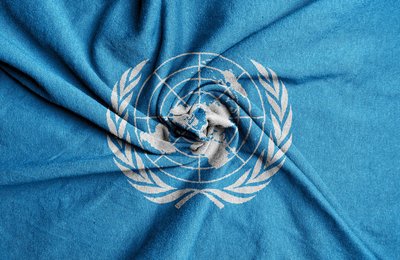On April 2nd this year the UN adopted the Arms Trade Treaty- a milestone document in curbing the weapons trade. Human rights groups are hoping that this will reduce the chances of genocides, human rights violations and crimes against humanity. And though the intentions of the people and organisations pushing for this treaty are commendable, it is important we cast a critical eye over this treaty and its interpretations in the media.
The treaty aims to restrict the transfer of all kinds of weaponry; from tanks and submarines, to small arms and light weapons. However, if we want to impede human rights abuses the focus should be devoted to small arms and weapons as these are most commonly used in instances of human rights violations. The cases of Rwanda and the Balkans have shown us that acts of genocide and extreme violence do not necessarily require the use of high-tech weaponry. The industrialized use of heavy weaponry is a skill perfected by a select few countries. Syria seems to be on the path to perfecting this with its ongoing civil war.
Moreover, if the treaty aims to reduce violence against civilians through blocking the transfer of technology and weaponry to countries deemed in danger of harming civilians, will this treaty also block the export of weaponry to ‘allied’ countries such as Israel, who have a history of using hi-tech weaponry that has affected civilians both directly and indirectly? If the answer to this question is no, is this not just a ‘convenient’ treaty that will be used to highlight and restrict the human rights abuses of one group of actors and not all of them?
The illegal arms market
In addition, if the idea is to suppress the illegal markets with these measures, it is important to consider that the use of repressive mechanisms could simply create further economic incentives for the traffickers. This will happen in a similar way as the ‘drug war’ has created incentives for drug smugglers that has, after 30 years of battling, failed to drown the market.
Misdirected media attention
A lot of media attention has surrounded Iran, North Korea and Syria’s opposition to the treaty. Clearly if there is an arms embargo, they will be three countries most significantly affected. However, the media’s focus on these three nations overlooks the subtle but significant actions of other nations - countries that have abstained from voting who could be equally important for this treaty. The image below highlights this.
In favor Against Abstentions Absent Non-member Looking at the statistics, Syria nor Iran nor North Korea feature in the group of nations that constitute the top 80% of arms exporters in the world - this point is salient as the UN treaty is more concerned with arms exports than imports. In fact Iran ranks at number 40 in arms exports in the years from 1990 to 2012, accounting for 0.05% of weapons exports in the world. Syria are number 42 and North Korea are number 65. Therefore the actions of the major weapons sellers who abstained from voting points to the fact that the treaty may not even be implementable. China and Russia, two of the biggest weapons dealers in the world, refrained from signing the treaty. In addition, countries like Egypt, Saudi Arabia, Sudan and Qatar abstained. This highlights the difficulty that the UN may have when attempting to ratify the treaty, as it requires 50 nations to do so for it to come into effect.
Exporters vs importers
Interestingly very little attention has been devoted to the major arms exporting nations who have abstained from this, a treaty, aimed at regulating arms exports. Rather, attention has been focused upon potential arms importing nations opposed to the treaty. This focus on the importers has occurred in spite of the fact that North Korea, Syria and Iran have all to some extent developed their own weapons industries. With this in mind the argument built surrounding these nations seems to be a straw man. The act of nations abstaining - and our ignorance to their reasons for doing so - point to the vagueness of this document. Therefore, any argument must be assessed independently of who brings it to the fore. If we do not do that then we are making decisions based on ideology, not analysis. Opponents of the treaty argue that the agreement favours major arms suppliers over importers that need weapons for self-defence - this is an argument that makes sense. If this argument looks less valid because it is presented by Syria, Iran or North Korea, nations that see self-defence as a national imperative, this raises questions on our biases and beliefs of what is justifiable and fair. What impact the treaty will actually have remains to be seen. It will take only effect after 50 countries ratify it, and the future of it will depend on that. If major suppliers of weapons do not sign it, we cannot expect this treaty to be landmark document some may have hoped it to be.








